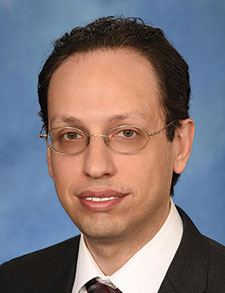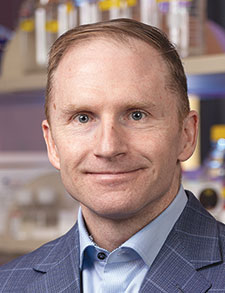When applying for a grant, Dr. Eliades, whose research interests include brain mechanisms and the basic neurobiology of hearing, advises members not to be too ambitious, especially early on. “Propose something achievable within a few years, particularly given the time pressures on new surgeon–scientists,” he said. “Have a strong mentorship plan, as well. Successful training grants and fellowships, like the K mechanism, almost depend as much on your mentor as they do on your science.”
Explore This Issue
September 2024Rick F. Nelson, MD, PhD, professor of otolaryngology and neurosurgery in the department of otolaryngology–head and neck surgery at Indiana University in Indianapolis, who received The Triological Society/American College of Surgeons Clinician Scientist Development Award in 2017, studies the common hearing loss gene, TMPRSS3, and its functional role within the cochlea.
The grant supplemented his K08 award from the NIH, helping to fund his research efforts and enabling him to hire additional research personnel. This expedited his research productivity and accelerated his ability to generate data for publications as well as preliminary data for his successful R01, he said.
When writing a meritorious grant proposal, Dr. Nelson recommends starting with your specific goal—which is typically hypothesis-driven. “Aim to generate high-quality preliminary data,” he said. “Seek collaborations to strengthen your proposal. Consult scientists and mentors with similar expertise, who can provide constructive feedback and review your proposal six to eight weeks before submission.”
“Don’t be discouraged if your first few attempts to get your grant proposal accepted don’t succeed,” said Dr. Eliades, whose recent efforts have primarily focused on the neural mechanism of vocal communication, including both vocal production and perception and how the two interact. “Keep at it. Most likely, your mentors have had similar experiences.”

